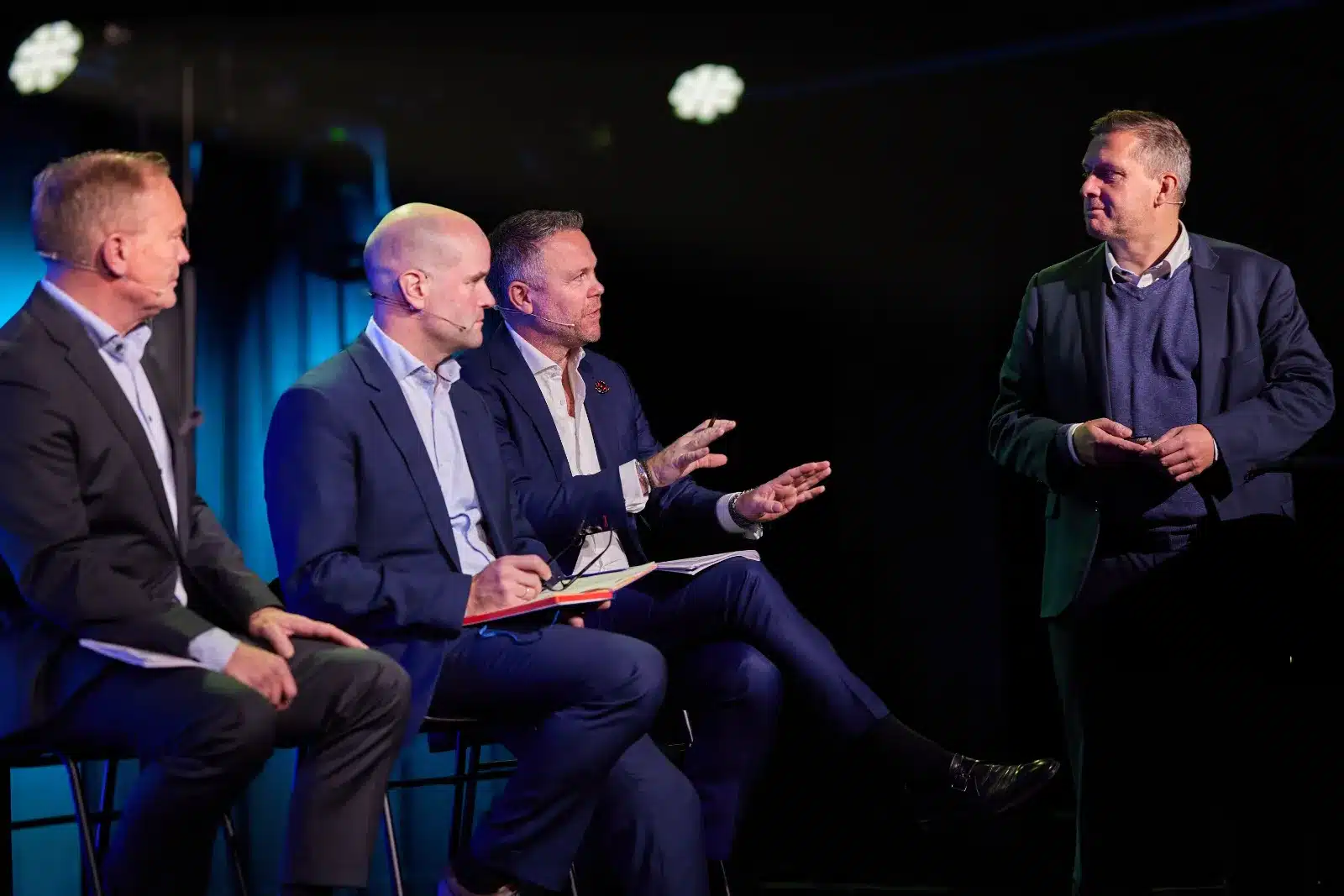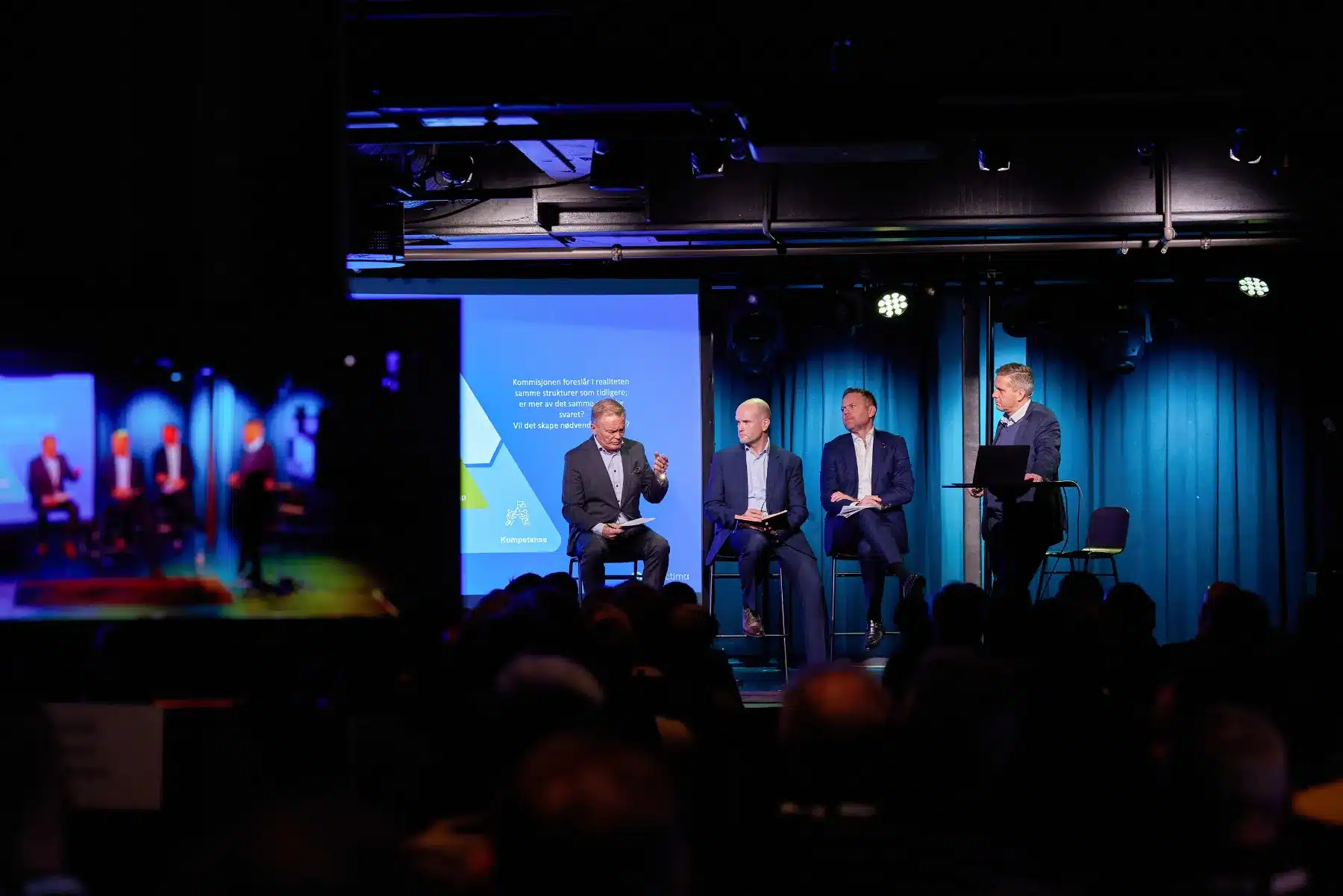This year’s RAYVN Symposium brought together leading experts, organizations, government bodies, consultancies and emergency responders from across Norway’s risk management, emergency preparedness and critical event management sectors.
Preparing for the unexpected was a central theme for a day packed with presentations about how to respond to emerging risks and increasingly complex global threats in our world of black swan events and polycrisis. Equally important were insightful discussions of resilience as a practice and the human factor in risk/incident management.
Understanding the Risks: The Outlook for 2023-24
Odin Johannessen, Director of the Norwegian Industry and Business Security Council (NSR), set the stage with his presentation on global security challenges in the form of political, economic, military and environmental threats. Increasingly, the scale and interlock of events means that even local events can have unanticipated global consequences. In Norway there is a growing gap between emerging threats and existing levels of security. Organizations today face significant challenges in the form of vulnerabilities in the value chain, a sharp increase in cyber incidents and growing concerns about espionage. Sectors such as defence, health, maritime technology, oil and gas and space operations are especially at risk from targeted attacks.
In the face of European and global security challenges, the Norwegian industry and business sector needs to focus on readiness and resilience. NATO guidance around preparedness prioritizes key areas such as government continuity, energy, the movement of people, food and water supplies, mass casualties and disruptive health crises, civil communications (such as telecom) and transport systems. Maintaining continuity of service, good governance and law enforcement in the face of threats are crucial. Resilience means that sufficient steps are taken to build on knowledge and threat assessment to prepare for the unexpected.
Building Resilience: A Case Study from Aker ASA
Anders Rimstad, the CSO of Aker ASA, offered insight into how this leading industrial investment company achieves resilience across its different companies, functions and disciplines. The ability to bridge strategic risk management and crisis management is key to resilience in today’s world, given the increased frequency and complexity of global threats.
Securing people, assets and brand reputation from intentional harm is at the core of Aker ASA’s approach to risk, emergency preparedness and critical event management. The Aker Security Centre of Excellence draws together many functions to identify/detect security threats, protect/prevent security breaches and respond to/recover from any critical security incident. This holistic approach is supported by quarterly meetings, ongoing security briefings and consultation. A company-wide harmonization of policies, procedures and plans–both horizontally and vertically–ensures a tight interlock between strategic risk management, emergency preparedness and crisis management. For Aker ASA, resilience stems from a continuous, rigorous and informed commitment to excellence in security across the company.
Norway: The Total Preparedness Commission

RAYVN Symposium Panel discussion with Odin Johannessen, Anders Rimstad, Halvor Molland, and Ivar Konrad Lunde
Ensuring the safety and security of Norway is the mandate of The Total Preparedness Commission acting on behalf of the state and citizens. In 2023, the Commission submitted its assessment of the strengths and weaknesses of the current preparedness systems, considering both national and international challenges in key areas, including technology, globalization, urbanization and the environment.
Odin Johannessen and Anders Rimstad joined Halvor Molland, Senior Vice President, Group Communication for Hydro, and Ivar Konrad Lunde, Consultant from Proactima, for a speaker panel to discuss the scope, recommendations and key questions arising from the findings of The Total Preparedness Commission. The lively interchange focused on the need for robust emergency preparedness, including local and regional levels, and building a resilient society. The need for private-public partnerships, collaboration with voluntary organizations and Nordic-wide cooperation is also vital. Supply chain management and digital security emerged as key threats that require focus.
Overall, the panel highlighted the need for a tight interlock between the structure, competence and culture that define leadership in safety and security preparedness. Questions were raised as to:
- structure: whether further structural change is needed for the future?
- competence: what skills and competencies are required, and how will they be built?
- culture: how to support the vertical and horizontal cooperation needed for a cooperative culture?
- leadership: whether the right leadership is in place at all levels of government to deliver on the necessary ‘social security boost’?
RAYVN in Action: A View from the Nest
Erik Skaara, Chief Business Development Officer and co-founder of RAYVN, as well as Linn Haaland, Customer Success Manager, presented on the company’s recent successes in emergency preparedness and critical event management. Case studies from Southwest Strategies in California as well as the Norwegian Directorate for Civil Protection (DSB) highlighted how RAYVN’s solution for digital collaboration reduces response time and enables organizations to leverage secure communications to gain instant situational awareness, share updates and fully coordinate action to resolve any incident efficiently. Skaara closed with an exciting view of the product roadmap–with support for integration and API support in 2024.
Cyber-Attack: Hydro ASA Case Study
Cyber-incidents are on the rise. The question is no longer if an attack will occur but when. Halvor Molland, SVP Communication and Public Affairs for Hydro ASA, discussed how the company responded to a 2019 LockerGoga ransomware attack that threatened locked files and closed down services across 170 sites for 35,000 employees globally. Fortunately, the company was able to resolve the incident without paying a ransom by restoring software and data from its recent backups.
Hydro was widely praised for choosing transparency to alert and update employees, stakeholders, investors, customers and the wider public about the incident as it unfolded. In the aftermath of the incident, Hydro undertook measures to improve their crisis management capabilities, implement even more rigorous IT security policies and share best practices across the industry to help cultivate security and safety globally.
The Human Factor: Vulnerability & Resilience
 Brynjar Gunnarskog, a psychologist and Head of Crisis Management at Molo BHT, discussed the role of human vulnerability during and after crises. With insights drawn together from polyvagal theory and psychology, Gunnarskog outlined how humans respond in crisis moments, explained how PTSD can arise and provided guidance on how people can recover as they learn to accept their vulnerability, reclaim their story, face triggers and reestablish an everyday life.
Brynjar Gunnarskog, a psychologist and Head of Crisis Management at Molo BHT, discussed the role of human vulnerability during and after crises. With insights drawn together from polyvagal theory and psychology, Gunnarskog outlined how humans respond in crisis moments, explained how PTSD can arise and provided guidance on how people can recover as they learn to accept their vulnerability, reclaim their story, face triggers and reestablish an everyday life.Kristin Harila: Being comfortable with the uncomfortable
Kristin Harila, a Norwegian mountaineer, has broken multiple world records as a mountaineer. Notably, she and Tenjin Lama Sherpa set the record for the ascent of 14 mountains over 8000 metres–including K2 and Everest–in 92 days on 27 July 2023. Kristin’s inspiring presentation focused on the importance of preparedness, risk assessment, strategies for resilience and initiatives for recovery, both when faced with a crisis on the climb as well as in post-climb responses to disaster
With vulnerability and courage, she explained how she is channelling her grief for the death of Lama (Tenjin Sherpa), her fellow mountaineer and guide, into recovery and eco-activism for the future. For more information, see her website kristinharila.com.
RAYVN Partners
Also present at Symposium 2023 were three key RAYVN partners.
The Proactima team showed Dmaze, a risk management solution for GRC and management system workflows. Earlier this year, the RAYVN / Proactima consortium has been selected to deliver an integrated solution for regional and municipal emergency preparedness, risk assessment and critical event management for the Norwegian Directorate for Civil Protection (DSB).
Emergency Response specialist consultants Total Safety and AI-innovator SKLLS were also present showing their AI-based training offer among other things.
Try RAYVN for free
Wondering if RAYVN is the right solution?
Get a fully functional RAYVN account to test drive its key features, verify it meets your needs, and see how easy it is to digitalize your emergency response plan.












